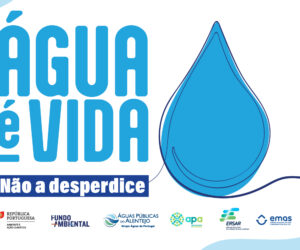Opinion (Rogério COPETO / Official GNR): CHILDREN OF WITHDRAWAL - Part 2.
As we learned in the previous article, to meet an urgent withdrawal of a child is necessary for the present or imminent danger, that this danger is against life or physical or psychological integrity of the child or young person and there is no consent of the holders of parental responsibility or who has custody of fact.
Lieutenant Colonel of the GNR
Master in Law and Security and Homeland Security Auditor
Head of the Education Division / Command Doctrine and Training
For ease of explanation and understanding of those assumptions we will address the first two together and comprising the subjective requirement, current or imminent danger and that this danger is to the life or physical or mental integrity.
The c) of article 5 of LPDPCJP defines emergency as "the situation of present or imminent danger to life or the situation of present or imminent danger of serious impairment of physical or psychological integrity of the child or young, requiring immediate protection under Article 91, or ordering the immediate need application for interim promotion and protection measures ". The emergency situation which justifies any intervention is one in which, according to this definition, represents a present danger (existing, so in a given situation, at a given moment) and imminent, (as you are about to hatch), transposing to the protection system a close figure of almost flagrante delicto criminal proceedings, Also fitting the cases in which the danger having finished, the presence of the authorities, even if all acts or revealing characteristics of that danger.
The LPDPCJP to use the word danger, wants to refer to a complete and serious situation of lack of conditions that make it possible to lower a development are harmonious in the physical, intellectual, moral e social. Should the concept of danger to be understood as the current or imminent risk (may be potential, provided that either some degree of probability) for security, Cheers, moral training, education and development of smaller, as stated above. Concluding that being threatened other rights of the child or young, not your life or physical or mental integrity, It is not legitimate the use of this procedure, not admitting the artº 91 other interpretation other than that this procedure is restricted to cases where it concerns the life or physical or psychological integrity of the child or young.
The CPCJ or ECMIJ have standing to apply artº 91, the scope of its assistance in promoting the rights and protection of children and youth at risk, since they do not require parental consent in order to intervene, but, in case of non-parental opposition to intervention, It is not legitimate recourse to article 91, since one of the conditions for the implementation of this procedure is precisely a absence of consent, requirement and final goal, to comply with article 91.
So, only when all those assumptions are met, it is legitimate to sacrifice other interests to safeguard the interests of the child or young person in danger. In the absence of absence of consent of the holders of parental responsibility or who has custody of fact, It is not legitimate the use of this procedure. Because the implementation of the emergency procedures provided for in article 91, justifies the sacrifice of other legally protected interests, in order to remove the child or young person from danger.
With regard to the intervention of FS in the application of article 91 of LPDPCJP, we remember that it is said that ECMIJ or CPCJ, when performing an emergency procedure in the absence of consent "take appropriate measures, for immediate protection and request the intervention of the court or the police authorities ", like us clear that the legislature intended to enable the Court and the FS at the same level, although also consider, such as already mentioned, and in accordance with the principle of subsidiarity, the Court shall as a last intervention level. But, when we are faced with an exceptional procedure, the legislature intended to make the Court had to intervene further upstream than normal.
So, whenever CPCJ or ECMJI perform an emergency procedure requesting the intervention of the courts or FS, and if the latter, They give immediately inform the MP or where this is not possible, soon to cease because of the impossibility. Since add that in accordance with paragraph 3 of article 91, while it is not the Court's intervention, the FS remove the child or young person of the danger they are in and ensure their emergency protection in temporary shelters house, the premises of ECMIJ or other suitable location.
Logo, occurring a current or imminent danger, at the request of CPCJ or any entity with expertise in childhood or youth, the child or young person should be removed from the situation it is in the FS, which ensures them their emergency protection.
However two issues may be raised by the content artº 91: first, whether the FS can only intervene at the request of CPCJ or ECMIJ or can also intervene on its own initiative? to second, if only FS can intervene?
Responding to the first question, check-se, in fact and considering the tasks of prevention and monitoring of FS, in particular those of law and order, security and public tranquility and of ensuring the safety of people (which include children and young people), and the particular knowledge of the social environment where they perform their activity, it seems clear that the police intervention can and should be done on their own initiative to be effected as soon as possible the necessary communication to MP, according No. 2 do art.º 91.º. It should be noted also that the FS are the entities that are closest to citizens and best placed to defend.
Regarding the second question that can also put, to know who carries out the removal of the child or young person in danger, which according to paragraph 1, is any entity (CPCJ or not), who first noted the need to intervene, subsequently requesting the intervention of any ECMIJ, the CPCJ, Courts or FS, and according to paragraph 3, in the case of not being able to contact with the Court, FS will be to remove the child or young person from danger.
The role of FS is critical in emergency procedure in the absence of consent, because article 91 attaches to the FS racing immediately stop current or imminent danger to the life or physical or psychological integrity of the child or young, when the holders of parental responsibility do not. The FS must remove the child and ensure their emergency protection in temporary shelters house, giving immediate notice to MP or as soon as possible. There is however a unique procedure of this FS, but when you step in the FS in the procedure will be, about us, to involve an official entity, the impossibility and absence of a court order, to make feasible and secure the time of withdrawal, more than one entity with specific competence to perform. So, It suggests that the FS is not intervention in mediation with the holders of parental responsibility, but this simple authority, collateral as security and the proper functioning of the running procedure.
As we refer back, when it intervenes in the protection of children or young people at risk, so it is important to know how to identify the dangers and know the principles on which such intervention is conditional, It is the child of withdrawal or young the best example, as in compliance with the principles for intervention are important, and the correct identification of danger signs.
Furthermore, also consider that being the emergency procedures in the absence of consent, an exceptional procedure, it can only be performed if the legal requirements are met: current or imminent danger; the danger is to the life or physical or mental integrity; and the absence of the consent of the holders of parental responsibility.

























